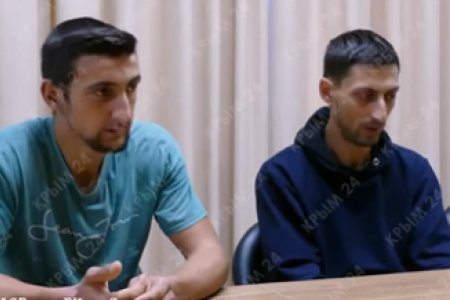
The European Court of Human Rights [ECHR] has found that Russia’s so-called ‘foreign agent’ law is in violation of the European Convention on Human Rights. The judgement might have been hailed as a victory for civil society in Russia and occupied Crimea, had it not been so hopelessly belated.
This was the second of two long-overdue judgements which coincided with legislative moves in Russia aimed at backdating Russia’s withdrawal from ECHR to 15 March and at further broadening the repressive scope of ‘foreign agent’ legislation. Like with the Court’s assessment of Russia’s ‘foreign agent’ legislation, the judgement in the Case of Taganrog and Others vs. Russia, finding violations in Russia’s ban of the Jehovah’s Witnesses, persecution and imprisonment of believers, was no surprise. What was startling is why it came so late, considering that the first application was in 2010 and the full ban, resulting in multiple prosecutions, dated back to 2017. The judgement was made public on 7 June and coincided with the passing in Russia’s State Duma of two ‘ECHR bills’ and a bill enabling the state to label anybody receiving financial or other support from abroad as a ‘foreign agent’. One of the ECHR bills was on removing Russia and occupied Crimea from ECHR jurisdiction. The other backdated cessation of such jurisdiction to 15 March. This was the date that Russia gave notification that it was withdrawing from the Council of Europe after the latter suspended the Russian Federation’s rights of representation on 25 February this year in response to Russia’s total invasion of Ukraine. Russia also informed of its intention to denounce the European Convention on Human Rights, thus inevitably leading to its rejection of the European Court of Human Rights’ jurisdiction, but this was only an intention. For that reason, the Court on 22 March published a resolution stating that Russia would cease to be a party to the European Convention on Human Rights from 16 September 2022. This was crucial, since it meant that Russian could be held to answer at ECHR for all violations of human rights committed before 16 September 2022, including those linked with Russia’s aggression against Ukraine, even if all the legal remedies which must first be tried had not been exhausted. The bills, including the one ending ECHR jurisdiction back on 15 March were signed into force by Russian leader Vladimir Putin on 12 June. Russia has essentially never done more than pay out the compensation awarded by the Court, but now it is saying it will only do this, and in roubles to accounts in Russian banks, where the judgements were passed before 15 March 2022.
While ECHR could not necessarily have foreseen Russia’s brazen violations of international law since 24 February, it is disturbing just how long they took to reach decisions that were surely without any alternative. Russia’s persecution of the Jehovah’s Witnesses is even in breach of Russia’s own Constitution and seems so egregious an example of religious persecution that the only question mark regarded how strong the Court’s language was.
The same, frankly, seems true with respect to the Case of Ecodefence and Others v. Russia, regarding ‘foreign agent’ legislation. In the judgement made public on 14 June, this was unanimously agreed to be “in violation of Article 11 (freedom of assembly and association) interpreted in the light of Article 10 (freedom of expression) of the European Convention on Human Rights. The case concerned the measures imposed by virtue of the Foreign Agents Act 2012 on the 73 applicant NGOs involved in civil-society issues, human rights, protection of the environment and cultural heritage, education, social security, and migration in Russia. The measures included their registration as “foreign agents”, which entailed extraordinary auditing, reporting and labelling requirements, and heavy fines. Many of the organisations had been either forced to dissolve or had been wound up as a result. The Court found in particular that under the Act: - classification of organisations as engaging in “political activity” and receiving “foreign funding” had been based on an overbroad and unforeseeable interpretation of those terms; - the creation of a new category of “foreign-agent” organisations, the burdensome auditing and reporting requirements, the excessive and capriciously imposed fines had meant that the measures taken against the applicant organisations under the Foreign Agents Act had not been “necessary in a democratic society”.”
In reporting the judgement, the European Human Rights Advocacy Centre [EHRAC], which, together with its Russian-based partner, the Memorial Human Rights Centre, brought the case before ECHR, said that it “sets an international precedent, laying the groundwork for civil society across the world to challenge current and proposed draconian legislation which could restrict their work, from Egypt to El Salvador.
This is doubtless very important, but does not make the fact that it is likely to have next to no impact in Russia any less galling. Russia has been making this legislation more and more repressive since it was first introduced in 2012. According to EHRAC, by the end of 2021, there were 75 NGOs registered as ‘foreign agents’, with 95 individuals or media outlets also listed in the Register of ‘Foreign Agents’ Media. Four NGOs had been liquidated for supposed breaches of ‘foreign agent’ legislation.
Russia has been fairly brazenly ignoring ECHR judgements, quite often including the Court’s interim orders under Rule 39, for a long time. In late December, the Russian Prosecutor’s moves to have both International Memorial and the Memorial Human Rights Centre dissolved were supposed to have been halted, pending the judgement passed on 14 June. Russia ignored the order and the decisions to dissolve these two vital NGOs came into force. In fact alleged violations of ‘foreign agent’ legislation were only ever a pretext for getting rid of courageous NGOs, defending human rights and opposing the current regime’s rewriting of history. As reported, the prosecutor also claimed that the Memorial Human Rights Centre was ‘justifying terrorism’ through its defence of political prisoners, including in occupied Crimea.
ECHR’s lack of movement in considering vital cases has been especially glaring with respect to Russia’s aggression against Ukraine since 2014. There had appeared to be a major breakthrough on 14 January 2021, when the Court found Ukraine’s complaints against Russia over violations in Crimea to be mostly admissible. This was supposed to pave the way for multiple judgements over the huge number of violations of human rights in occupied Crimea. 18 months later, there was no sign of this, nor even of the long-awaited judgement in the interstate Case of Ukraine and the Netherlands v. Russia over the downing of MH17 and Russia’s actions in eastern Ukraine.



